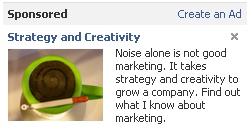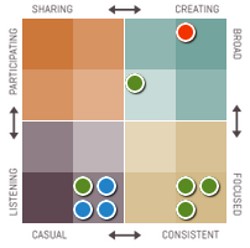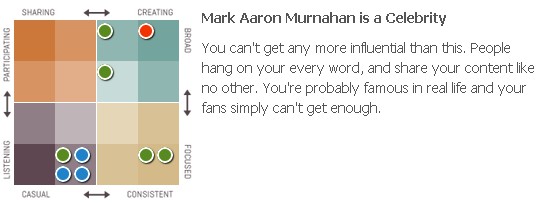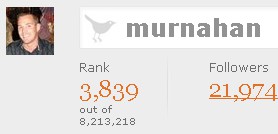
I want to introduce you to Michael Colemire, a Kentucky artist, and newly initiated asker of dumb SEO questions.
I talk to a lot of people about SEO and social media marketing. It is my job, so that makes perfect sense. I answer a lot of questions, debunk a lot of myths, and develop a lot of ideas. I brainstorm with industry know-it-alls, and I brainstorm with people who know little or nothing about these topics, but want to grow their business.
Something I found interesting while I recently visited on the phone with my friend and long-time reader of my blog was that he was afraid of asking dumb questions. His name is Michael Colemire, and he is a very talented sculptor and wood carver. He is not a marketing guy, but he has some great works of art to market, so he wants to learn.
Michael said that the reason he often hesitates to comment on my blog is that he didn’t want to bother me with dumb questions. Also, being such a nice guy, he did not want to feel like he was taking advantage of me. After I picked my jaw back up and thought for a moment, I realized that he had expressed a pretty common and legitimate sentiment. I want to shatter any misconceptions about this.
You see, I have a pretty tricky task of writing a blog about SEO and social media marketing. These are topics which reach people from every different skill level and many different schools of thought about best practices. I try to produce something useful that will cover many skill levels, and that is the trickiest thing.
Why I Want Your Dumb SEO Questions
Reader’s comments are very important to me, because they help me to understand what people already know, or want to know more about. Comments (including “dumb” questions) help to keep me sharp with an appropriate answer, and they give other readers opportunities to look at things from other angles, and cultivate their thoughts.
A sad truth of the Internet is that it is very easy for people to be selfish. A lot of people will not do something for other people “just because”. It is common that if people think it may benefit you, more than it does them, they will just pass on by. They won’t comment, they won’t retweet it, and they won’t share it on Facebook … unless there is more in it for them than for you.
Something I shared with Michael, and I’ll tell you, is that those “dumb questions” also provide other benefits to me, such as better ranking and recognition in lists that measure a blog’s value to readers. No, it doesn’t pay me money, but it does bring me a bit closer, and it is like a big warm hug and a pat on the butt. I think that every writer needs a pat on the butt and an “attaboy” now and then.
I guess you could say that your comments and dumb SEO questions directly benefit me in a lot of ways, but what about how they benefit you?
Afraid of a Dumb SEO Question or Comment? Think Again!
I know that a lot of people will totally overlook this, but when you add your comment to my blog, it will probably benefit you even more than it does me. This is because when you add your comment, you can add a link to your website, which can have a real benefit to your search engine rankings. It also comes with networking benefits as I described in a recent article titled “Why Disqus May Be The Best Social Network of 2011“,
Do you know what a link from a high-traffic and well ranked blog can do to help your search engine rankings? Well, I’ll just say that it is why I delete a constant flow of spam comments from people who want no more than a link from this blog. Yes, I kill the useless spammy comments, but the legitimate stuff stays here.
Your sincere questions and useful answers deserve to be rewarded, and that reward comes in the form of the number one highest valued SEO treasure there is … a link to your website. Not to mention a great opportunity to network with other readers who may decide you are pretty cool.
One more thing: If you are a super great person like Michael Colemire, I may even credit an article to you.
What SEO Questions are Dumb?
There are a lot of things which I may think are obvious, but then, this is the work I do every day to earn a living and feed my family. These things are supposed to be obvious to me, after about 15 years in the industry. Let me assure you that they were not always so obvious. I have worked hard and spent a lot of time to develop a solid understanding of my job. Practice makes a world of difference.
I can’t carve or sculpt like Michael Colemire, and I probably never will. If I asked him how to carve a piece of wood into an intricate design, my questions may sound really basic to him, but only because I don’t know the answers.
I guess my point here is that the dumbest questions about SEO are simply the ones you neglect to ask. I would love to say that there are no dumb questions, but I am not ready to commit to that, just yet. I have heard some pretty damn dumb stuff over the years. Most of the questions about the work I do, and the things I write about are just kind of like the questions I would ask Michael. Not dumb at all, just inexperienced.
On the topic of SEO questions, I have listed some of the most common SEO questions, created lists of things people should know about SEO, and have a pretty lengthy blog archive. I welcome you to read these, but in any case, I hope that you will never hesitate to add your comment or question about an article I write. After all, answering questions a primary goal of this blog.
So, what are your dumb SEO questions? Bring it on!
Podcast: Play in new window | Download








